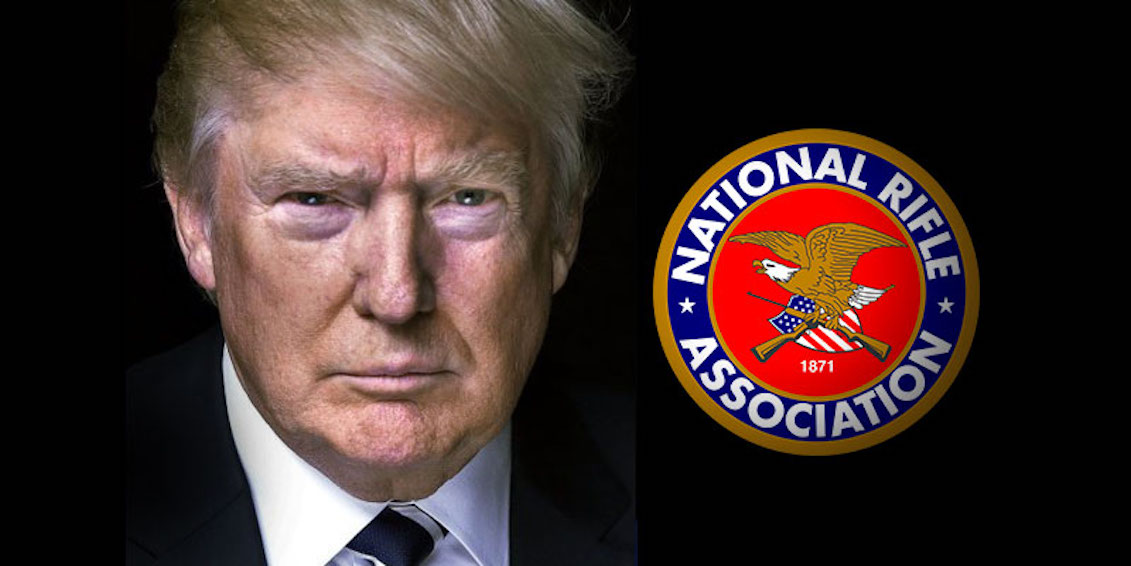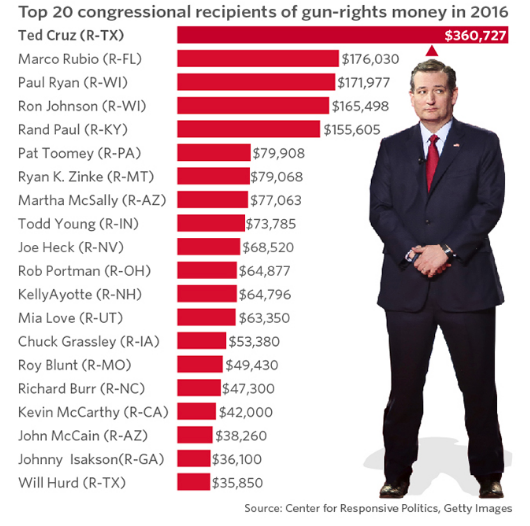
The NRA and the Republican Party, a limitless romance
After the fateful shooting in Parkland last week, the National Rifle Association (NRA) has taken the stage as the cornerstone of the political debate over gun…
It is no secret to anyone that US policy is handled with two major levers: public opinion and money, being frequently the second who makes the first boost.
Founded in 1871, the National Rifle Association (NRA) - a "non-profit" organization that promotes arms rights - has been involved in legislation since 1934, promoting protections for its members and pro-weapons citizens in general since 1975.
Having become one of the most influential lobby groups in Washington, the NRA has more than 5 million members since 2013, and now has a network of subsidiary organizations whose tentacles have undermined US policy to its very foundations.
After the National Firearms Act of 1934 was approved as the first federal gun control law, the NRA focused on sports and hunter groups nationwide, as a way to divert political issues around carrying weapons. But certain arms rights activists, led by Harlon Carter, began to participate more actively in the lobbying and financing of political campaigns that benefited gun fanatics since the 1970s.
Its political objectives were met by the powerful conservative caucus of the Republican Party, establishing a political action committee (PAC) that would become "one of the biggest spenders in Congressional elections", under the title of Political Victory Fund.
During the last decades, the NRA has gone back in power and influence thanks to the strategies of its main political strategist, Chris W. Cox, who managed to donate money to more than 88% of the Republican candidates and only 11% of the Democrats.
For Lee Drutman, a political scientist at the Sunlight Foundation, the contributions of the NRA "are more about political alliances than about influence," and this can be seen in the history of affiliations of the Political Victory Fund, which supported people like Ronald Reagan in 1980 or Rick Santorum in 2006.
Similarly, the NRA managed to spend up to 40 million dollars in the 2008 elections, including 10 million in opposition to the election of Barack Obama.
More recently, the NRA showed its absolute support for President Trump since his presidential campaign, assuring that his support "was in part due to Hillary Clinton's strong stance in favor of gun control."
As reported by the Open Secrets political research center, the NRA donated up to 30 million dollars for the election of Donald Trump in 2016, as well as 6.2 million for the campaign of Senator Richard Burr, 3.2 for Marco Rubio, 3 for Roy Blunt, 2.8 for Todd Young, 2.5 for Joe Heck and 2.2 for Rob Portman, in an aggressive strategy for Republicans to win back the majority in the Senate.
And the results were seen almost immediately.
RELATED CONTENT
As if money were writing the speeches, Trump said during his campaign that, "the Second Amendment is threatened as never before. Crooked Hillary is the most anti-gun, anti-Second Amendment candidate who has ever run for office."
Between campaign financing (and speeches), advertising and equipment, the NRA managed to define 4 seats in the Senate and 3 in the House of Representatives in 2016, and ensure that the right to carry weapons without strict regulations remained intact.

But the issue is more complicated than a "2 + 2".
In the United States, more than 40% of households own firearms, according to the Pew Research Center analysis, and even though almost three-quarters of Republicans favor organizations like the NRA, the influence of lobbyists in support of weapons is only one of the edges of an economic machinery that is organized around the structuring of the political landscape in the country.
As Vox explains, "the NRA gave close to $1 million to Republican senators’ PACs in 2014 – or about 1 percent of the $67 million they raised that year.” This puts in perspective the real influence of the NRA money on the final votes of the legislators. But for Drutman, who is also a senior member of the New America expert group and a collaborator with Vox, the real connection between Republicans and the NRA has to do with the number of votes the organization can mobilize.
"The way you rise up in Republican politics is by supporting gun rights issues, and you do that because there are a lot of Republican voters in the coalition who care very deeply about gun rights," Drutman explained.
In short, the real battle that must be waged to reach a solution to mass shootings is, then, a multilateral approach that includes not only gun control but a law that satisfies the 40% of the population that take their right to be armed to the teeth at face value, no matter how serious the collateral effect might be.











LEAVE A COMMENT:
Join the discussion! Leave a comment.